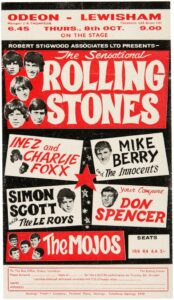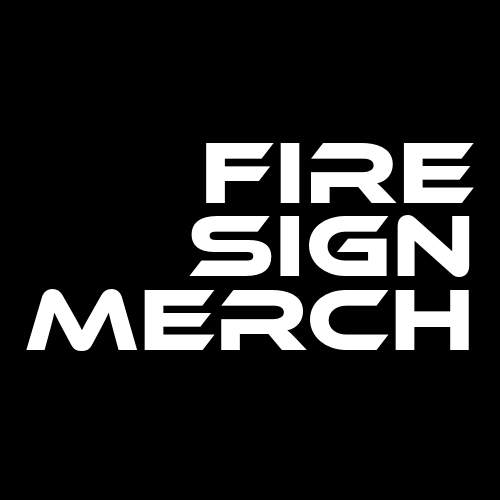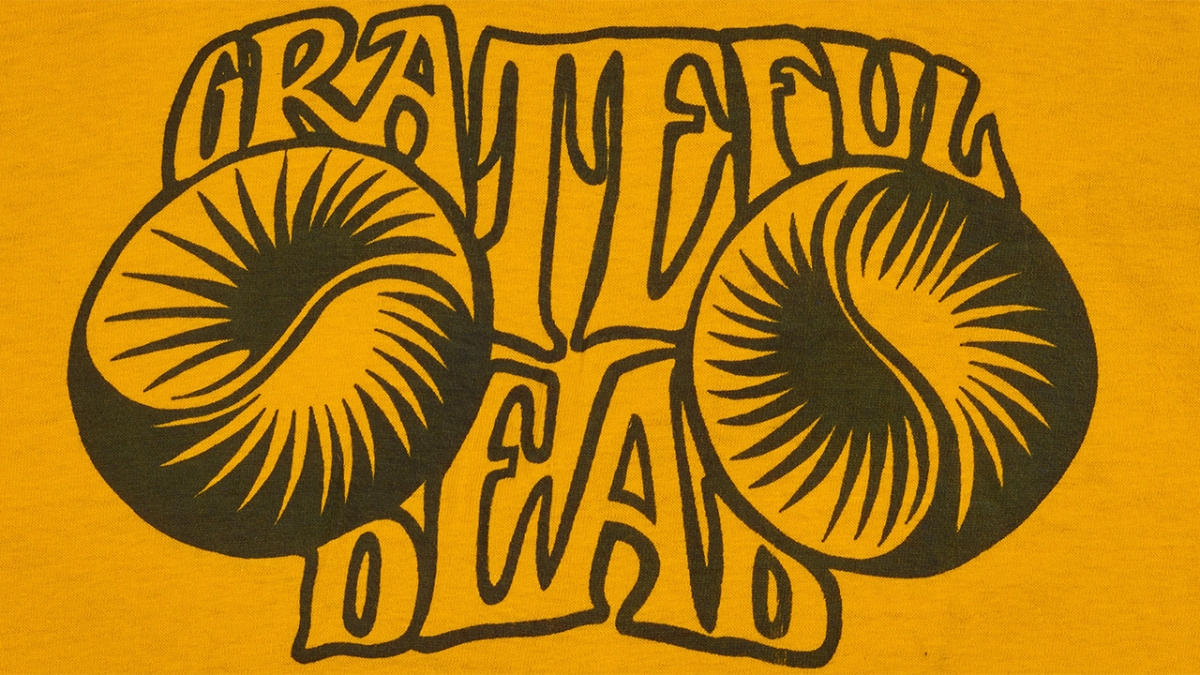The advent of band merch has a fascinating history closely tied to the evolution of popular music and the invention of the first Rotary Multicolor Garment Screen Printing Apparatus in 1960. While pinpointing the exact origins of band merchandise is tough (some claim the first “band” tee was made in tribute to Elvis Presley by a young fan club member), the trend gained significant traction with the rise of rock and roll later icons like The Beatles, The Rolling Stones, and Led Zeppelin.

THE ROLLING STONES 1964 CONCERT POSTER.
One of the earliest forms of band merchandise was the concert poster. These posters were intended as a marketing vehicle, plastered around tour stops to advertise upcoming shows and sell tickets. They typically featured the band in two or three bold colors with details about the show time and admission fee in text at the bottom. The posters inadvertently became collectors’ items.
Later came the proliferation of the band tee, with several early adopters being The Rolling Stones, The Beatles, and The Grateful Dead. These bands began selling t-shirts adorned with their logos, album artwork, or tour dates at concerts and through mail-order catalogs, allowing fans to proudly display their allegiance to the music they loved.
As trends and popular music genres continued to evolve, the demand for band merchandise grew throughout the latter half of the 20th century and into the 21st century. With the rise of punk rock, heavy metal, hip-hop, et al, band merch became anything and everything a band could brand, including hoodies, hats, posters, stickers, guitar picks, glassware, and keychains.
The internet and e-commerce further revolutionized the band merch industry, making it easier for fans to purchase products online and for bands to reach a global audience. Today, band merch is not only a way for musicians to generate additional revenue but also a means for fans to express their identity, connect with like-minded fans, and support their favorite artists.

